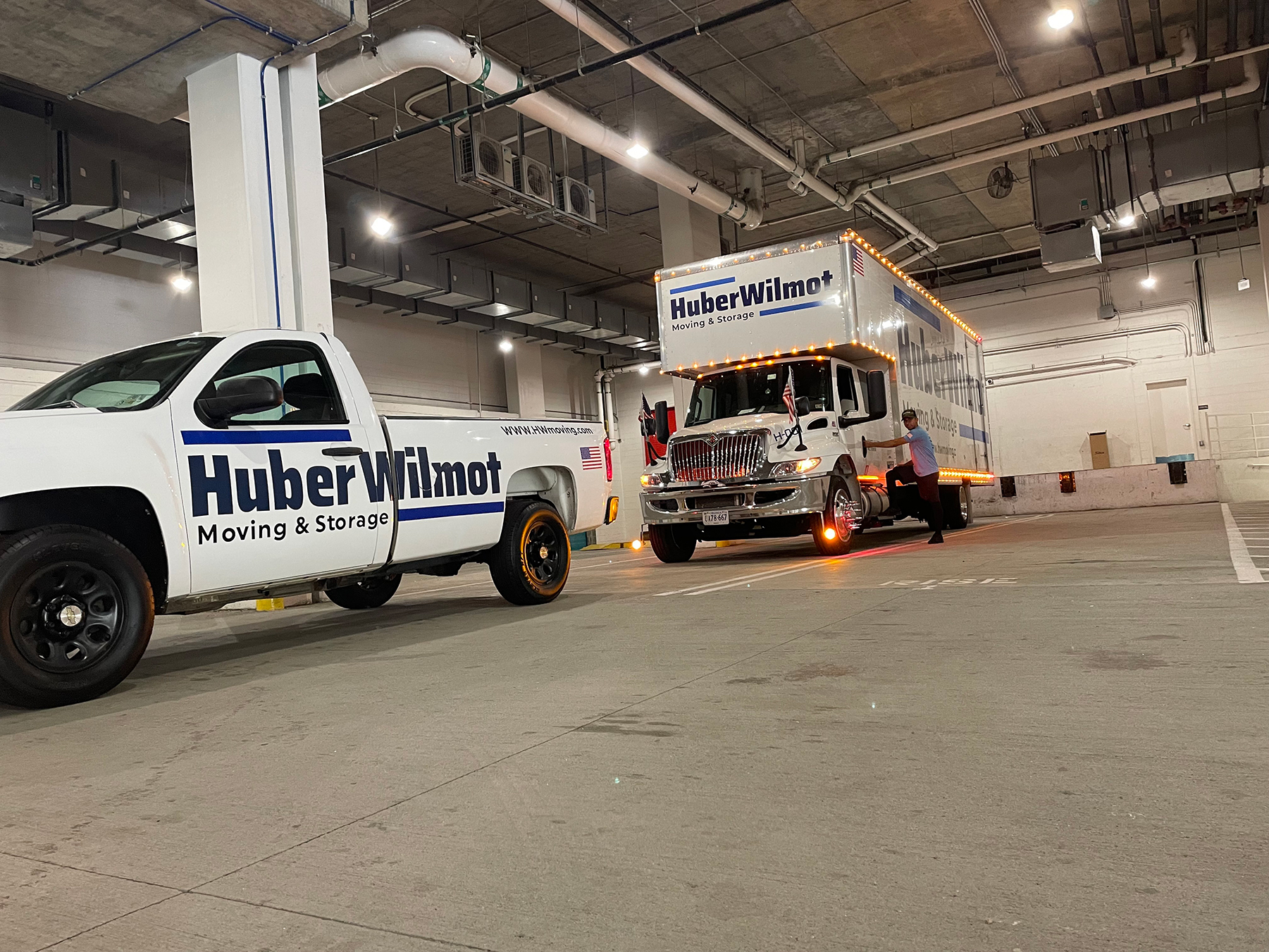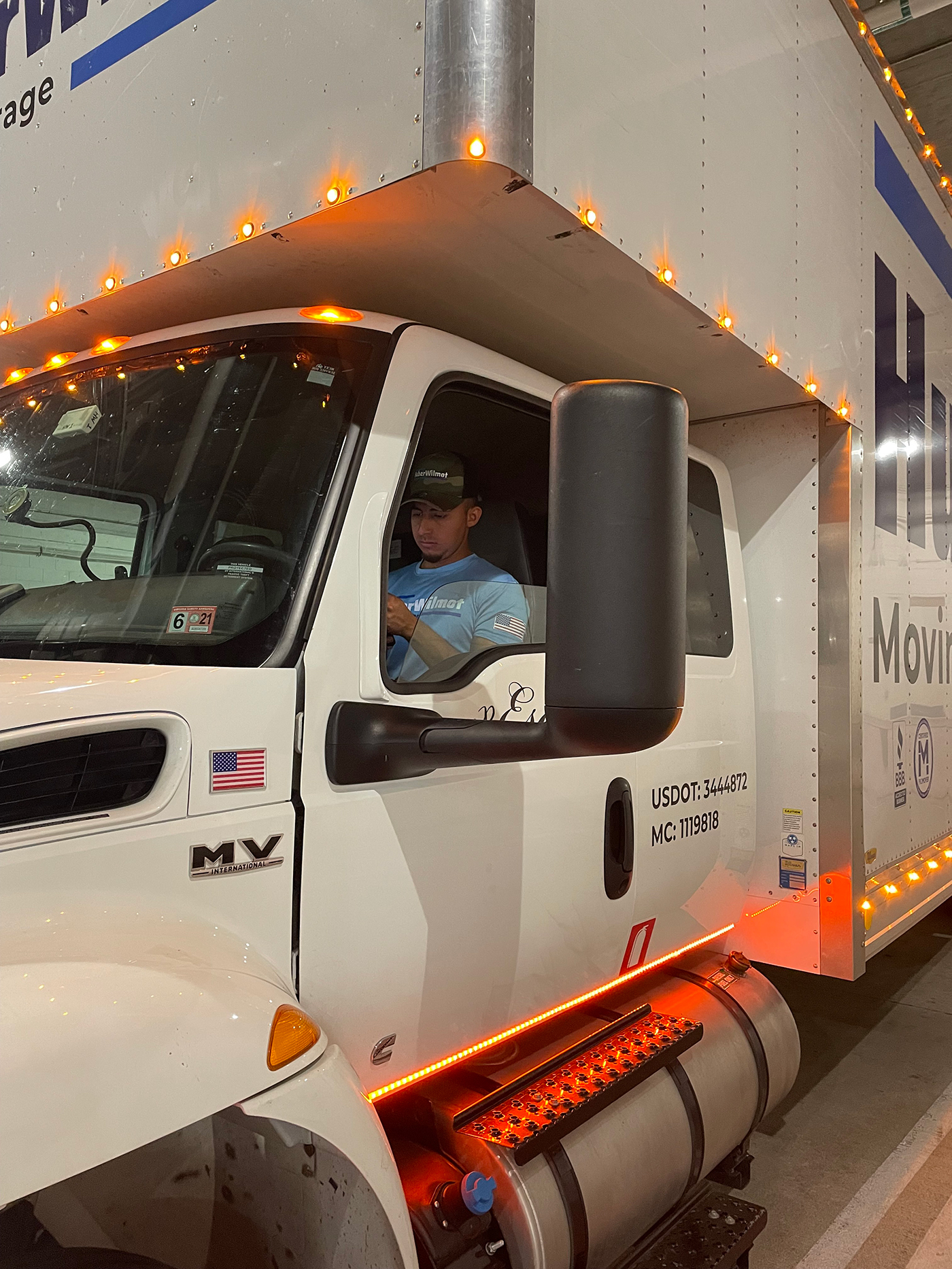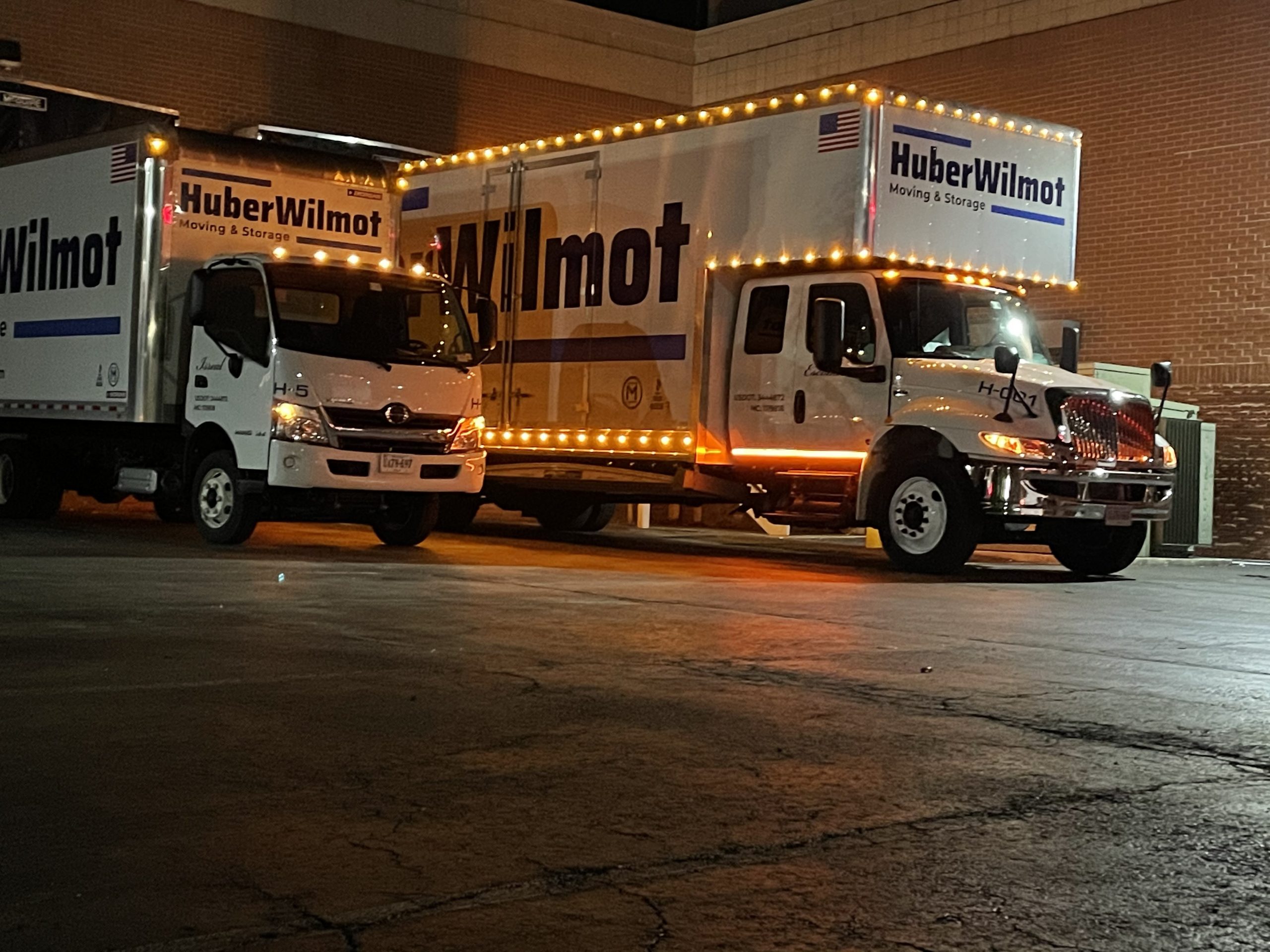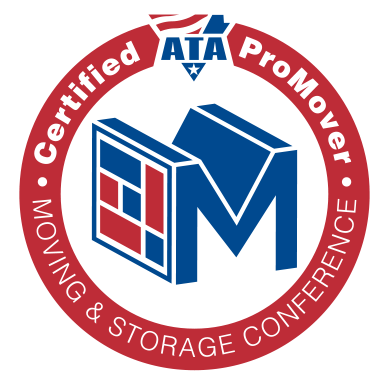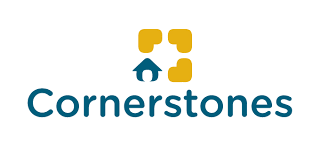Buyers Guide to a Successful Relocation
A Buyers Guide to A Successful Relocation
Quick Read
This guide is designed to answer all of your questions about your upcoming move to make your experience simple and efficient from beginning to end. Find the answers and tips to all aspects of a household move including:
- Do I Need A Mover?
- What Kind Of Mover Do I Need?
- Choosing the “Best Moving Company” for You
- Types of Moves HuberWilmot Moving & Storage Can Complete
- Hiring HuberWilmot Moving & Storage
- Make An Accurate Inventory of Your Belongings
- Questions to Ask HuberWilmot Moving & Storage
- Questions HuberWilmot Moving & Storage Will Need To Know
- Moving Day: What to Do
- New Location: What to Do
- Post-Move Tips
- Moving Glossary
The average American changes their residence 11.3 times throughout their life.
Ben Franklin said, “Moving three times is as bad as a fire.” That 18th century adage is no longer true — especially if you hire professional movers like HuberWilmot Moving & Storage.
Even if this isn’t your first move, relocating to another place is exciting but stressful. This can lead to missing important details that work in making your move successful.
Fortunately for you, we’ve compiled the top questions and concerns to ask when hiring any moving company. At HuberWilmot Moving & Storage, we love when our customers ask us questions. This can help us help you complete a near-perfect relocation no matter where you want to go.
You may move only 11 times in your life, but we move families and businesses like yours every day.
Do I Need A Mover?
If you find yourself asking “do I need a mover?”, consider these financial aspects when looking at professional movers to hire:
How much does it cost to have someone move you?
- The cost to hire a mover varies based on the inventory of your move and its weight.
- Movers also charge an hourly fee for labor, which includes their travel time.
HuberWilmot Moving & Storage offers free quotes for our services. Fill out our form today to get an estimate for your move.
How much does packing cost?
- According to HomeAdvisor, the cost to pack a home varies between $270 and $2,200, with the average being $1,000.
- If you’re hiring a pro to pack and unpack, the cost can run from $370 to $3,600.
Do I need insurance for my move?
- If you have any high-value items that the crewmembers at HuberWilmot will be moving, we recommend you insure your items regardless of how far you’re moving.
What Kind Of Mover Do I Need?
If you’re looking to downsize or rightsize your office, or you’re simply changing homes, we have moving and storage services ranging from local and long distance to office and corporate relocation that depend on:
- The distance of your move.
- The number of rooms you need to move.
- If you require specialty services (moving antiques, gun safes, pianos, senior moving services, or estate cleaning services)
- If there are any pieces of furniture that require disassembly or reassembly.
Choosing the “Best Moving Company” for You
Get quotes in writing.
- Eliminate confusion and miscommunication.
Talk to 2-3 companies
- Compare what they have to offer and at what price.
- Do this about six weeks ahead of time, or sooner if you’re moving during the summer.
Are they licensed and insured?
- Make sure you’re covered in the event of an accident.
- Ask for license and insurance carrier.
Are they family-owned and operated?
- If there is a problem, talking to the owner is best.
How long have they been in business?
- Experience makes a difference
Read reviews.
- Don’t look just at the five-star recommendations. Also look to see the common complaints people reported and how the company offered to rectify them.
Types of Moves HuberWilmot Moving & Storage Can Complete
Full-Service Move
Full-service moving offers packing/unpacking options as well as furniture disassembly/reassembly. Just like the name says, it’s full service. That means that the customer doesn’t need to lift a finger.
Partial Move
If you’ve already rented a truck or POD, but you still need movers to help you pack, haul and transport your items, we’ve got you covered.
Simply let us know the extent to which you need our services, and we can even offer you some packing materials all in one location, including:
- Boxes
- Tape
- Packing paper
- Moving blankets
Labor Only Move
If you’re planning on driving the truck(s) yourself and packing your items on your own, but you need some muscle power to take care of the heavy lifting, HuberWilmot can help you out.
Hiring HuberWilmot Moving & Storage
- What information to have ready before calling HuberWilmot Moving & Storage:
- Date and times of your move
- What services you require
- If you have any items that require special handling
- Ballpark on how much you’re willing to spend
- Choose several consecutive days during which your items can be loaded
- Fill out an online quote form
- Most moving companies will have an opportunity to fill out a free moving estimate form on their website. Once you narrow down the movers you are interested in using, fill out their online quote forms to get a quote on your moving cost.
Make An Accurate Inventory of Your Belongings
- Start with a binder or folder
- Create a new inventory sheet for each room
- Put all sheets together in the folder/binder where you can also store receipts and paperwork from HuberWilmot Moving & Storage.
- Go through each room and note:
- Any furniture that needs disassembly/reassembly
- Items that will be boxed and the shape of the box
- Possessions that require special handling
- Put all sheets together in a moving binder, where you can also store receipts and paperwork from the moving company
Questions to Ask HuberWilmot Moving & Storage
Do you provide boxes or totes?
- Whether they provide moving containers or not, you should ensure the ones you’re provided (or purchasing) are durable.
What types of moving supplies do they offer (wardrobe boxes, moving blankets, dish boxes, mattress bags, flat-screen TV boxes)?
- Can wardrobe boxes be rented instead of purchased?
Should I unpack my dresser drawers?
- If it’s a sturdy, well-made dresser being moved from home to home, you can leave clothes in the drawers.
- Otherwise, all loose items should be packed in boxes to prevent loss or damage while moving.
- It is recommended that you pack all items and leave the drawers empty.
Are there any items that HuberWilmot Moving & Storage prohibits from transporting?
- Aerosol Cans
- Ammunition
- Automotive Repair and Maintenance Chemicals
- Bleach
- Butane or Propane Tanks/Bottles
- Cleaning Supplies
- Combustibles
- Fireworks
- Gasoline
- Hazardous Materials
- Lighter Fluid
- Matches
- Nail Polish Remover
- Oxygen Bottles/Tanks
- Paint & Paint Thinners
- Perishable Items
Which items should I move myself?
- Any of the items listed above, if it is safe and legal to do so
- Important documents:
- Birth certificates
- Passports
- Mortgage papers and contracts
- Laptop computer
- Medications
- Jewelry
- Money and coins
- Pets
- Emergency kit
- Moving company contract
Can HuberWilmot Moving & Storage move my car?
- If you have a collector car or a spare car in storage, you can discuss auto transport options with us during the initial quote consultation.
Questions HuberWilmot Moving & Storage Will Need To Know
How many floors is your home/office?
- We’ll make sure to bring the right tools and equipment and the correct number of crewmembers
- Stairs may add overall time to the move
- If your building has elevators, reserve one in advance.
Do you have antiques?
- We will outline valuation coverage and discuss how to pack or crate your fragile antique items.
Do you want someone to help you pack?
- We offer full-service packing and partial packing, based on your needs.
Do you want additional insurance coverage?
- Valuation coverage is an optional added liability insurance. Please discuss this with your moving advocate upon contacting HuberWilmot.
Are both the origin and destination accessible by our truck(s)?
- If your locations are on a hill or in a hilly area, our movers and drivers will need to prepare.
- For inaccessible locations, we may need to arrange for a shuttle service to load items into a smaller vehicle for the destination.
Is there a place to park in front?
- Where will the movers park in relation to your front door?
- Will they need a permit for street parking?
Are there any items you don’t want packed?
- Label the items you don’t want loaded and/or designate a room for these things.
- Be upfront with the mover about all of your items, so we can establish an accurate inventory and estimate
Call HuberWilmot Moving & Storage
Once you have received your quotes, you should be able to choose a mover that meets your needs and your budget.
Pre-Moving Day: What to Know
- The customer service representative and/or driver will contact you at least 24 hours prior to load day to let you know the time of arrival.
- Be sure to let them know of any changes that have taken place that may affect loading day.
- Make sure your home is ready for the crew by moving anything off the porch and clearing walkways from obstructions.
- If you know how, please remove the doors off the hinges if you know certain items will not fit through.
- Remove all small throw rugs from heavily-trafficked areas that could cause a crewmember to trip or slip.
Moving Day: How to Help
On moving day, our drivers will prepare the site with runners, door jamb protectors, and railing protectors if applicable. This will help save on the little knocks that may occur during the loading process.
So, what should you do to help expedite things come moving day?
- Make sure someone is present and readily available for guidance, assistance and any questions our crew should have.
- Conduct an initial walk-through with our team to reassess what needs to be packed in the home, prior to the moving crew getting started.
- Label and set aside items that you will be taking with you in your personal vehicle you so that they aren’t inadvertently loaded on our moving van.
- Provide your moving coordinator with a phone number so they may contact someone if they have a question.
- When the movers arrive, do another walk-through to ensure everything has been loaded. At the destination, and after the move is completed, perform an inspection of the moving trucks to ensure nothing has been left behind.
- Keep children and pets in a secured area while movers are packing and loading.
- All walkways and driveways must be clear of snow, ice, mud, other hazards, and vehicles.
- Read your Bill of Lading carefully before you sign them. Keep these and all related papers in a safe location until all charges have been paid and all claims, if any, have been settled.
- Provide your sales rep or project manager with cell phone numbers, prior to departure of your current home or point of origin.
- On load day, perform a walk-through of home and inform the driver of everything to be loaded. After the load, make sure nothing has been left behind.
New Location: Now What?
Do you need to set up cable, phone, wifi and request yard maintenance services?
- Talk to the cable installers and other utility-related services for your new home four weeks ahead of the move to arrange for connection
- Have utilities turned on a day before your move
- Arrange to have utilities turned off at your old home a day after you move out
Do you need a cleaning service?
- The best time to deep clean a house is before you move in
- Consider scheduling a cleaning crew a day or two ahead of the move
Do you need people to unpack?
- HuberWilmot offers unpacking services too!
- We can place your items on a counter for you to put away or place them in the cupboards and closets
- We can also haul away and recycle empty boxes
Post-Move Tips
How do I file and receive my settlement on my claim?
- File a claim by contacting us on our site or calling us at (703) 488-7117
- It is important that you understand your coverage and how to proceed through the claims process.
- Please understand your moving coverage and be certain to have the proper documentation in the form of an inventory with the damage noted
Here are some pro tips when it comes to preparing for a claim:
- Be sure to keep the broken items in question because they will need be inspected for your claim.
- Submit your claim as soon as possible in order to expedite the process.
- If you notice a missing or broken item on the day of the move, be sure to say something to your movers right then to protect your rights. If you don’t it’s hard to prove who is at fault.
How much will I recover as compensation?
- Don’t expect to get the full value back for your lost or damaged item. The moving company may ask how much you paid for the item or what the condition was like before. You may be able to negotiate how much you receive back, but this is up to the moving company itself.
- If you opted to pay for full valuation for your moving company, you will receive more compensation for your item. Valuation is typically dependent on the weight of your items and can be as low as receiving back a total amount based on $0.60/pound of your item.
- Movers are able to limit their liability coverage on more expensive items. However, the exact cost of value protection varies by the mover, so it is beneficial to ask your mover about their plans and have a clear understanding of your rights before signing the paperwork.
Let the company know if you are not happy. Or leave a positive review online.
- Bad experience? Contact the moving company. More than likely, they will have policies and procedures set in place.
- Good experience? Leave a review for them on Google or Yelp to let others know they are a great company to work with. Informing the moving company about your experience also helps them to better serve their customers by informing them what they did right and what they can do better.
Moving Glossary
Moving is a specialized industry and you’re likely to come across terms you’re unfamiliar with. We’re here to break down commonly used moving terms and what you need to know:
- Accessorial/Additional Charge: Charges for additional services, such as packing/unpacking.
- These charges may show up for unexpected issues during your move, such as having to use a shuttle service.
- Bill of Lading: The bill of lading is the receipt for your goods and the contract with your mover for their transportation.
- The driver who loads your shipment must give you a copy of the bill of lading.
- Read the bill of lading before you accept it.
- Ask your moving company questions if you don’t understand something.
- By signing this bill of lading, you are entrusting all of your belongings to the mover for transportation.
- Binding/Non-Binding Estimate: this is what is provided before the move as an estimation of how much the move will cost. The full charge amount will be given after the move is completed.
- Binding: The mover quotes a flat price based upon a given inventory. No matter how long the job takes, the flat price is always paid. It is given only when an onsite estimate is performed
- Non-Binding: These estimates are based upon the movers’ previous experience of jobs similar to yours. As the name suggests, these estimates are subject to change
- Carrier: the mover or company you’re working with.
- C.O.D.: stands for “cash on delivery.”
- Payment is required at time of delivery (before the move),
- Some movers take cash, cashier’s checks or money orders.
- Be sure to discuss payment options with your mover before your moving date.
- High-Value Article: an item valued at about $100 per pound.
- Ask our Moving and Storage Advocates to provide you with an explanation of our company’s process in handling extremely valuable items.
- This is a confusing (but important) task, so be sure that you clearly understand the rules prior to load day.
- Interstate Move: Any move that crosses state boundaries regardless of miles.
- Intrastate Move: A move within the state.
- Moving Counselor: A moving professional assigned by a moving company who provides guidance during the moving process.
- Order for Service: The document that authorizes the moving company to move your items.
- Order Number: The number used to identify and track your shipment. It will be found on your order for service and the bill of lading.
- Shuttle Service: When a smaller vehicle is used to transport your shipment to its destination. This usually happens when a road is too narrow or there isn’t enough parking to get the moving truck to its destination.
- Storage In Transit (S.I.T.): Temporary storage for your belongings if your new home isn’t ready.
- The time in storage may not exceed more than 180 days.
- Note that you will be charged for storage fees.
- Valuation: This is not insurance, but a specific amount a moving company agrees to pay if the item is damaged or lost by the mover.
- Options for minimum or full coverage
- Federally regulated
- Often determined by weight of goods
Now, you’re fully armed with all the knowledge you need to make a successful move. You know what to look for in movers, what to pack, and some frequently used terms to help you navigate your moving contract. You are at an advantage–you’re going into this process knowing more than the average Joe.
Moving is stressful. But you’ve got this!
Did you know...?
How will you protect my upholstered furniture?
We use a special material called stretch-wrap. It is a heavy, clear-plastic wrap that protects your furniture from being soiled.



